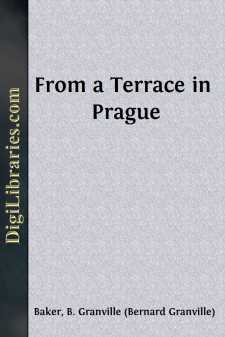Categories
- Antiques & Collectibles 13
- Architecture 36
- Art 48
- Bibles 22
- Biography & Autobiography 816
- Body, Mind & Spirit 145
- Business & Economics 28
- Children's Books 18
- Children's Fiction 14
- Computers 4
- Cooking 94
- Crafts & Hobbies 4
- Drama 346
- Education 58
- Family & Relationships 59
- Fiction 11831
- Foreign Language Study 3
- Games 19
- Gardening 17
- Health & Fitness 34
- History 1378
- House & Home 1
- Humor 147
- Juvenile Fiction 1873
- Juvenile Nonfiction 202
- Language Arts & Disciplines 89
- Law 16
- Literary Collections 686
- Literary Criticism 179
- Mathematics 13
- Medical 41
- Music 40
- Nature 179
- Non-Classifiable 1768
- Performing Arts 7
- Periodicals 1453
- Philosophy 66
- Photography 2
- Poetry 897
- Political Science 203
- Psychology 45
- Reference 154
- Religion 516
- Science 126
- Self-Help 86
- Social Science 82
- Sports & Recreation 34
- Study Aids 3
- Technology & Engineering 59
- Transportation 23
- Travel 463
- True Crime 29
Our website is made possible by displaying online advertisements to our visitors.
Please consider supporting us by disabling your ad blocker.
From a Terrace in Prague
Description:
Excerpt
CHAPTER I
Refers in a general way to several great and historic cities of this earth. Indicates the routes by which Prague may be reached by the traveller from the West, tells a wayside story or two and mentions several very great people, also others of a less degree. Digresses seriously from the purpose of the whole book by raking up the author's personal recollections of people that lived and events that happened right away back in the last century, and far away in the East.
The author then formally introduces a friend, the ancient and venerable City of Prague.
HE Psalmist once declared in a burst of enthusiasm, no doubt justified, that "Jerusalem is a city that is at unity in itself." This remark applies with equal right to other great historic cities, as who can deny it that has stood in the "Place de l'Opéra" and felt that Paris is indeed at unity in itself?... Or who that has looked upon Constantinople rising out of the pearly depths of the Sea of Marmora will fail to realize that the city of Constantine, despite its many vicissitudes, was indeed a united whole fulfilling its sometime tragic destiny in the history of mankind?
Lisbon, mirrored in the broad waters of the Tagus, is another such city, and so, in yet more marked degree, is Prague. The Psalmist, in poetic exuberance, may appear to have overstated the case, allowance must be made for him, but in the main he was right. The city of Zion had grown up at the feet of the temple of David, and its massive strength impressed the poet who overlooked the bickerings, the quarrels, of the "dwellers therein"; he knew his city was the centre of his race, for "thither the tribes go up," and he took in only the big enduring things; he held the key to the soul of the city.
Let us, then, approach the city of Prague in the right manner, prepared to enter into the spirit of the place, to realize what it stands for, what it has always stood for since those dim days when legend and history entwined.
It is said that "all roads lead to Rome"; as many lead to Prague, as a glance at the map will show. There are first of all those oldest of roads—the waterways—along which moved wandering tribes in quest of betterment and adventure. Two of these waterways meet just above Prague, the Vltava and Berounka; they open out from the wooded heights of the Bohemian Forest, the former river leading up towards a pass in those heights over which you descend to the Danube near Linz, the latter showing the way into the heart of Bohemia from the west from Bavaria. It was by the latter route probably that the Boievari, a Celtic tribe, made their way after a short stay in Bohemia, to settle in the land that is called after them, Bavaria.
Bavarians, who had become thoroughly Germanized, and many other Teutons, frequently found their way into Bohemia by this route, notably in the fifteenth century, when a vast unwieldy army called up by Rome and led by an English Cardinal, tried conclusions with a nation in arms inspired by religious fervour and led by à ½iška the Hussite, and was beaten ignominiously....


